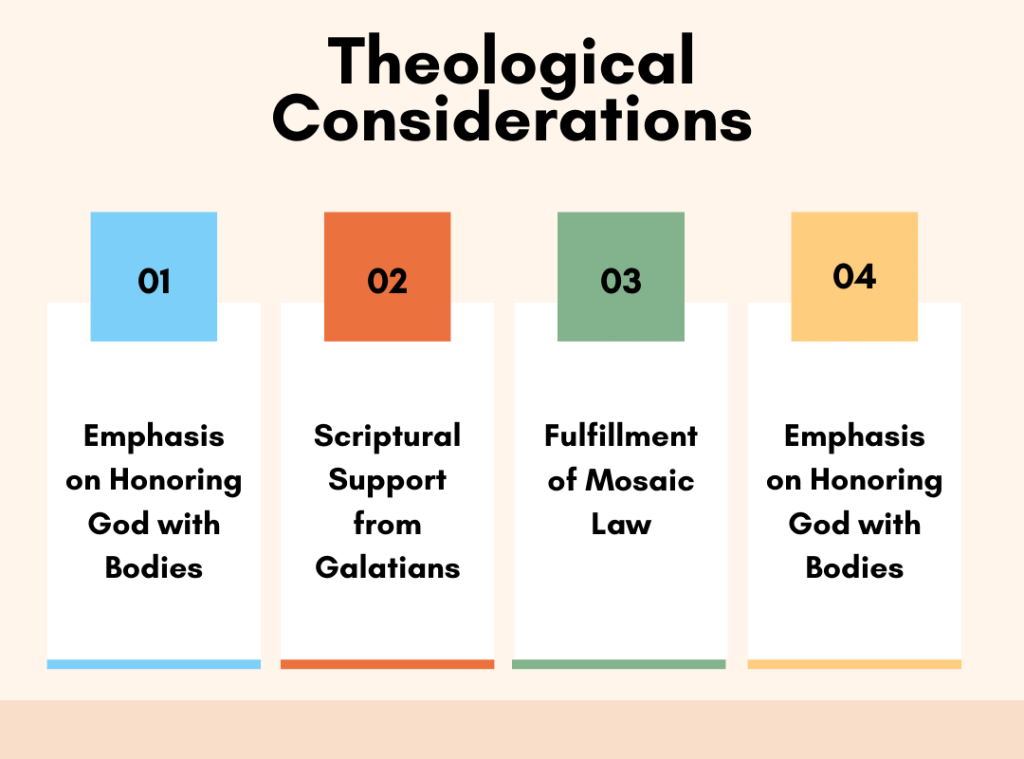The Eternal Debate: Tattoos and Christianity
Tattoos have long been a topic of discussion, controversy, and personal conviction within the Christian community. For some believers, the mere mention of permanently marking one’s skin with ink conjures up images of rebelliousness, worldliness, or a lack of reverence for the body as a “temple of the Holy Spirit.”
Others, however, see tattoos as a form of self-expression, artistic outlet, or even a means of honoring their faith. This ongoing debate has left many Christians wondering, “What does the Bible really say about tattoos?
In this comprehensive article, we will embark on an in-depth exploration of the biblical texts, historical perspectives, and theological considerations surrounding the issue of tattoos.
Our goal is to provide a nuanced understanding of this complex topic, empowering readers to make informed decisions that align with their personal convictions and the broader principles of Scripture.

II. Examining Key Biblical Texts of What Bible Says About Tattoos
Leviticus 19:28: Tattoos and the Mosaic Law
One of the primary biblical passages often cited in the tattoo debate is Leviticus 19:28, which states, “You shall not make any cuts on your body for the dead or tattoo yourselves: I am the Lord.” (ESV) On the surface, this verse appears to present a clear prohibition against the practice of tattooing.
However, to fully understand the significance of this passage, we must consider the historical and cultural context in which it was written. The Mosaic Law, of which Leviticus 19:28 is a part, was given to the Israelites as a means of maintaining their distinct identity as God’s chosen people, separated from the pagan practices of the surrounding nations.
In the ancient Near Eastern cultures, tattoos and other forms of body modification were often associated with pagan rituals, idol worship, and mourning for the dead. By forbidding such practices, God was protecting His people from the influence of these idolatrous customs, which could lead them astray from their devotion to the one true God.
It is important to note that the prohibition in Leviticus 19:28 is part of the broader Mosaic Law, which was fulfilled and superseded by the new covenant established through Jesus Christ.
As such, many Christians argue that the literal prohibition against tattoos no longer applies to believers under the new covenant, as long as the tattoos are not used for purposes that are contrary to biblical principles.
Other Relevant Passages
While Leviticus 19:28 is the most frequently cited verse in the tattoo debate, there are other passages in Scripture that may shed light on the issue. For instance, 1 Corinthians 6:19-20 states, “Or do you not know that your body is a temple of the Holy Spirit within you, whom you have from God?
You are not your own, for you were bought with a price. So glorify God in your body.” (ESV) This verse emphasizes the sacredness of the human body and the idea that we are stewards, not owners, of the physical form God has entrusted to us.
Similarly, Romans 12:1-2 calls believers to “present your bodies as a living sacrifice, holy and acceptable to God, which is your spiritual worship.” (ESV) This passage suggests that our physical bodies should be dedicated to God’s service and not marked or defaced in a way that would dishonor Him.
However, it is important to note that these passages do not explicitly address the issue of tattoos, and their interpretation can vary among different Christian traditions and individuals. Some believers may argue that tattoos, if chosen and designed thoughtfully, can actually be a way of honoring God and expressing one’s faith, rather than a violation of these principles.

Historical and Cultural Perspectives
Tattoos in Ancient Cultures
To fully understand the biblical perspective on tattoos, it is helpful to explore the historical and cultural contexts in which the practice of tattooing emerged. Tattoos have been a part of human history for thousands of years, with evidence of their use in ancient cultures around the world, including ancient Egypt, Polynesia, and the Ainu people of Japan.
In the ancient Near Eastern world, tattoos were often associated with pagan religious practices, mourning rituals, or the marking of slaves and criminals. The Israelites, as God’s chosen people, were called to maintain a distinct identity and separate themselves from these customs, which is the likely reason for the prohibition in Leviticus 19:28.
The Evolution of Tattooing
Over the centuries, the perception and practice of tattooing have undergone significant changes. In the modern era, tattoos have become more mainstream and have been embraced by various subcultures, from the military to the entertainment industry. While some Christian denominations and communities continue to view tattoos with skepticism, the overall attitude towards body art has become more diverse and accepting, even within the church.
Tattoos in Modern Christianity
Today, the Christian perspective on tattoos remains varied and complex. Some denominations and individual believers maintain a strict interpretation of Leviticus 19:28, viewing tattoos as a violation of biblical principles.
Others, however, have adopted a more nuanced approach, recognizing that the cultural context of the ancient Israelites is vastly different from the modern world and that tattoos can be used for various purposes, including self-expression, memorial, and even as a means of witnessing one’s faith.
This diversity of views within the Christian community has led to ongoing discussions, debates, and personal reflections on the appropriate use of tattoos for believers. As we navigate this complex issue, it is essential to approach it with wisdom, compassion, and an openness to understanding different perspectives.
IV. Theological Considerations

The New Covenant and the Law
A key aspect of the tattoo debate within Christianity is the relationship between the Old Testament Law and the new covenant established through Jesus Christ.
As mentioned earlier, the prohibition against tattoos in Leviticus 19:28 was part of the Mosaic Law, which was given to the Israelites as a means of maintaining their distinct identity and separating them from pagan practices.
However, with the coming of Jesus and the establishment of the new covenant, the Mosaic Law was fulfilled and its requirements were no longer binding on believers. In Galatians 3:24-25, the apostle Paul states, “So then, the law was our guardian until Christ came, in order that we might be justified by faith. But now that faith has come, we are no longer under a guardian.” (ESV)
This theological shift has led many Christians to argue that the literal prohibition against tattoos in Leviticus 19:28 no longer applies to believers under the new covenant. Instead, they emphasize the importance of honoring God with our bodies and making decisions that are consistent with biblical principles, while allowing for greater personal freedom and discernment in matters that are not explicitly addressed in Scripture.
Body as a Temple
Another key theological consideration in the tattoo debate is the concept of the body as a “temple of the Holy Spirit.” This idea, expressed in 1 Corinthians 6:19-20, suggests that our physical bodies are sacred and should be treated with reverence, as they are the dwelling place of God’s Spirit.
Some Christians interpret this passage as a prohibition against any form of body modification, including tattoos, as they may be seen as defiling or desecrating the temple of God. Others, however, argue that as long as the tattoos are not used for purposes that are contrary to biblical principles (such as idolatry, immorality, or self-harm), they can be a means of honoring and expressing one’s faith.
Christian Freedom and Personal Conviction
Ultimately, the issue of tattoos within Christianity involves a delicate balance between the principles of Christian liberty and the responsibility to make wise and God-honoring choices.
While the Bible does not provide a clear-cut command regarding tattoos, it does call believers to exercise discernment, seek counsel, and make decisions that are consistent with their personal convictions and the broader teachings of Scripture.
As the apostle Paul states in Romans 14:5, “Each one should be fully convinced in his own mind.” (ESV) This suggests that the decision to get a tattoo (or not) should be a matter of personal conviction, guided by a prayerful consideration of one’s motivations, the potential impact on one’s witness, and a desire to honor God with one’s body.
Practical Considerations for Christians
Motivation and Meaning
When it comes to the issue of tattoos, the primary consideration for Christians should be the motivation and meaning behind the decision to get one. Are the tattoos a form of self-expression, a way to commemorate a significant life event, or a means of honoring one’s faith? Or are they perhaps a reflection of a desire for rebellion, worldliness, or a lack of reverence for the body?
By carefully examining their personal motivations, Christians can better discern whether a tattoo aligns with biblical principles and their own convictions. It is important to approach this decision with prayerful reflection and a willingness to seek counsel from trusted
Content and Symbolism
In addition to examining one’s personal motivations, Christians considering tattoos should also thoughtfully consider the content and symbolism of the design. It is important to choose imagery and text that are edifying, biblically-sound, and avoid any associations with pagan beliefs, occult practices, or offensive subject matter.
Some believers may opt for tattoos that feature Christian symbols, such as the cross, the ichthus (fish) symbol, or biblical verses.
Others may choose more abstract designs that hold personal meaning and significance. Regardless of the specific imagery, the goal should be to ensure that the tattoo is a reflection of one’s faith and commitment to Christ, rather than a source of potential stumbling or misunderstanding for fellow believers or unbelievers.
Church Community and Witness
Another important practical consideration for Christians with tattoos is the impact on their involvement in the local church community and their overall Christian witness.
While the acceptance of tattoos has become more widespread in recent years, some churches and Christian fellowships may still view body art with skepticism or concern.
It is important for believers to be mindful of how their tattoos may be perceived by other Christians, especially those who hold a more conservative view on the matter.
This does not mean that one should refrain from getting a tattoo entirely, but it does suggest the need for wisdom, transparency, and a willingness to engage in discussions and address any concerns that may arise.
Additionally, Christians with tattoos should consider how their body art may impact their witness to unbelievers. While tattoos themselves are not inherently sinful, they may be perceived by some as a sign of worldliness or a lack of commitment to Christ.
In such cases, believers should prayerfully consider how to navigate these situations, seeking to build bridges and demonstrate the love and grace of Christ, rather than causing unnecessary offense or barriers to the gospel.
Seeking Wise Counsel
Ultimately, the decision to get a tattoo as a Christian is a highly personal one that requires careful consideration, prayer, and the wisdom of trusted advisors. It is important for believers to seek counsel from their pastor, elders, or other mature Christians who can provide biblical guidance and help them navigate the complex issues surrounding tattoos and their faith.
By engaging in open and honest discussions, Christians can gain valuable insights, consider different perspectives, and make decisions that align with their personal convictions and the broader principles of Scripture. This process of seeking wisdom and accountability can help ensure that any tattoos acquired are a reflection of one’s faith, rather than a source of conflict or stumbling within the body of Christ.
Conclusion
The issue of tattoos within the Christian community is a complex and multifaceted one, with a wide range of perspectives and interpretations. While the biblical text appears to present a clear prohibition against the practice in Leviticus 19:28, a careful examination of the historical and cultural context, as well as the theological shifts brought about by the new covenant, suggests that the matter is not as straightforward as it may seem.
Ultimately, the decision to get a tattoo as a Christian should be a matter of personal conviction, guided by a prayerful consideration of one’s motivations, the content and symbolism of the design, and the potential impact on one’s involvement in the local church and Christian witness. By approaching this issue with wisdom, compassion, and a willingness to engage in open and honest dialogue, believers can navigate the complexities of this topic and make decisions that honor God and edify the body of Christ.
Additional Resources
For those seeking further exploration of this topic, the following resources may be helpful:
Books:
- “Tattoos on the Heart” by Gregory Boyle
- “The Skin You Live In” by Michael Tyler
- “Christians and Tattoos” by Sean McDowell
Articles:
- “Tattoos and the Christian Faith” by Russell Moore
- “What Does the Bible Say About Tattoos?” by Got Questions Ministries
- “Should Christians Get Tattoos?” by Desiring God
Websites:
- The Christian Tattoo Association: https://christiantattooassociation.com/
- Relevant Magazine’s coverage of tattoos and faith: https://relevantmagazine.com/tag/tattoos/
By providing a comprehensive and nuanced examination of the biblical, historical, and theological considerations surrounding tattoos, this article aims to equip readers with the necessary tools to navigate this complex issue and make informed decisions that align with their personal convictions and the broader principles of Scripture.


